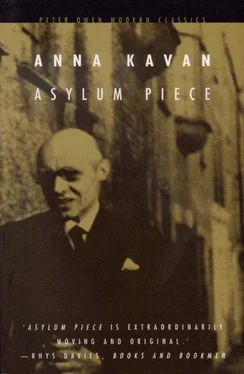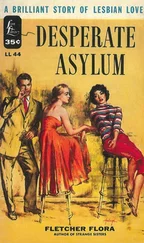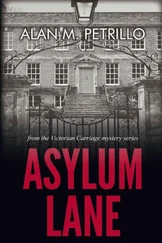H was sitting on the opposite side of the table, almost immediately facing me. In the midst of so many brown heads her fairness alone was arresting. It was an autumn evening, misty and cold, and the room was not too well lighted. I had the impression that what light there was in the dining hall clustered around her, reviving and renewing itself as it played upon her fair hair. In looking back I think that she must have been beautiful; yet the detailed picture of her obstinately eludes me, I can recall only an impression of a face unique, neither gay nor melancholy, but endued with a peculiar quality of apartness, the look of a person dedicated to some accepted destiny. Perhaps these phrases sound out of place in connection with a schoolgirl who was only a few months older than I; and naturally I did not think of her in that way at the time. It is the accumulated rather than the momentary impression which I want to convey. Just then I saw only a fair girl, slightly my senior, who, catching my eyes upon her and doubtless thinking that I might be in need of encouragement, smiled at me across the table.
I remember that I looked back at her with some envy. It seemed to me then that she must possess everything that I, as a newcomer, lacked — success, popularity, an established place in the school world. Afterwards I found out that this was not quite the case. A curious shade seemed to dim all H’s activities. I came to look upon this shadow, so hard to describe in words, as being in some way the complement of her rare outward brilliance.
How can I convey the strange sense of nullification that accompanied her? Although she was not unpopular, she had no intimate friends; and although she was in the first rank both as regards work and sport, some inevitable accidental happening always debarred her from supreme achievement. This fate she seemed to accept without question: almost, one would have thought, without being aware of it. I never heard her complain of the bad luck which so consistently robbed her of every prize.
And yet she was certainly neither indifferent nor unaware.
I recall very clearly an occasion towards the end of my time at school. In one of the corridors was a baize-covered board to which, among other notices, was fastened a large sheet of paper bearing our names and the number of marks which each of us received every week. H was standing in front of this list, quite alone, looking at it with an expression that I did not understand, an expression not of resentment, not of regret, but, so it seemed to me, of resignation combined with dread. Seeing that look on her face I was overcome by a wave of passionate and inexplicable compassion; an emotion so profound, so apparently unjustified by the circumstances, that I was astonished to feel tears in my eyes.
‘Let me help you… Let me do something,’ I heard myself imploring, inarticulate as though my own fate were at stake.
Instead of answering me, H rolled up one of her sleeves and silently pointed to a blemish on her upper arm. It was a birthmark, faint as if traced in faded ink, which at first sight seemed to be no more than a little web of veins under the skin. But as I examined it more closely I saw that it resembled a medallion, a miniature design, a circle armed with sharp points and enclosing a tiny shape very soft and tender — perhaps a rose.
‘Have you ever seen that anywhere else?’ she asked me; and it crossed my mind that she hoped that I too bore a similar mark.
Was it disappointment, embarrassment or despair that appeared on her face as I reluctantly shook my head? I only know that she hurried out of the corridor and that for the rest of the time I was at school she seemed to avoid me and that we were never alone together again.
The years passed, and though I heard nothing about H, I never really forgot her. Every now and then, once or twice a year, when I was in a train, or waiting for an appointment, or getting dressed in the morning, the thought of her would come to me, together with a peculiar discomfort, a kind of spiritual unease which I would banish as soon as possible.
One summer I was travelling in a foreign country, and, owing to an alteration in the railway timetable, I found myself obliged to change trains at a small lake-side town. As I had three hours to wait, I left the station and went out into the streets. It was an August afternoon, very hot and sultry, ominous thunder clouds were boiling up over the high mountains. At first I thought I would go down to the lake in search of coolness, but something ill-omened in the aspect of that stagnant sheet of lava-coloured water repelled me, and I decided instead to visit the castle which was the principal feature of the place.
This ancient fortress was built at the highest point of the town and was clearly visible from the square in front of the station. It seemed to me that I had only to walk up any one of the steep streets leading in that direction to reach it in a few moments. But my eyes must have deceived me as to the distance, for it turned out to be quite a long walk. Arriving hot, tired and unaccountably depressed at the great studded gates, I almost decided not to enter, but a group of tourists was just going inside and I allowed the guide to persuade me to join them.
I had been told at the station that the building now served as a museum, so it surprised me to see armed soldiers standing on guard in the courtyard. Replying to my question, the guide told me that part of the castle was still in use as a prison for offenders of a certain type. I tried to find out more as I had not heard before of these special prisons; the guide listened to me politely but refrained from answering. The other tourists, too, seemed to disapprove of my inquisitiveness. I gave in and became silent. We all trooped into a great hall and gazed at the dark stone walls carved in threatening relief.
As we went from one gloomy chamber to the next I wished more and more that I had not come on this expedition. The stone flags tired my feet, the menacing walls, the heavily barred doors, depressed my spirits; but I had the idea that it was impossible to go back, that no one would be permitted to leave these precincts until our guide led us outside again.
We were examining a display of medieval weapons when I noticed a small door half-hidden behind a suit of armour. I cannot tell now whether it was bravado, or a sudden longing for fresh air, or just idle curiosity that made me step behind the knight’s ponderous armour and try the handle. To my astonishment the door was unlocked. It opened quite easily and I passed through it. The others, engrossed in the guide’s lecture, paid no attention.
I was now in an enclosed flagged space, too small to be called a court, open to the sky, but so barricaded by cliff-like walls that no sunlight reached it and the livid air felt stale and oppressive. Not liking this any better than the interior of the castle, I was about to return to the tedious tour I had just forsaken, when something made me look down at the ground. I was standing in front of what I took for a low grating, a ventilator probably, which did not reach higher than the calf of my leg. Looking more attentively, I saw that this was in reality a low, barred window giving on to some subterranean cell. It was a movement behind the bars that had caught my eye. I knelt down, peering through the weeds which had grown up in the cracks between the great flag-stones.
At first I could see nothing, it might have been a black cellar into which I was gazing. But soon my eyes penetrated the darkness and I could make out some sort of a pallet under the grating with a shrouded form lying upon it. I could not be sure whether it was a man or a woman who lay there, shrouded as if on a bier, but I thought I discerned a tarnished gleam of fair hair, and presently an arm, no thicker than bone, was raised, feebly, as if groping towards the light. Was it imagination, or did I really see on that almost transparent flesh a faint stain, circular, toothed, and enclosing a shape like a rose?
Читать дальше












